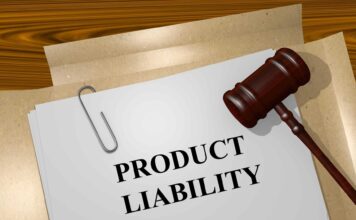When involved in an accident, we feel vulnerable. The unthinkable suddenly becomes thinkable, and many people find themselves completely unprepared for it. Dealing with injuries, missed work, insurance claims, and lawsuits can feel overwhelming, especially if you’re injured and need to focus on your recovery.
At Cohen, Feeley, Altemose & Rambo, we understand that accident victims are in a vulnerable position and may feel unsure about who to trust. The roles of insurance companies and personal injury lawyers are vastly different after an accident. Understanding their roles and how they impact your case can be critical to getting access to the resources needed for recovery and the compensation you deserve to get you back on your feet.
You Had an Accident: Now What?
After an accident, you may find yourself in a battle between the insurance company, your medical bills, and court deadlines. All states have a statute of limitations that determines how long you have to file suit for damages to your property and injuries and/or wrongful death.
In addition, some limitations and deadlines govern how quickly insurance carriers must respond to claims. However, that doesn’t mean that the insurance company always pays attention to them. Attempting to keep track of your records, attend therapy appointments, provide documentation to interested parties, and maintain your peace of mind can be a lot to ask. For this reason, a person may wish to hire a personal injury lawyer.
What Is a Personal Injury Lawyer?
A personal injury lawyer is a lawyer who protects the rights of accident victims. They practice in the area of tort law. Tort laws provide injured parties avenues to pursue legal action against an individual or third party who harmed them or their property.
Personal injury lawyers work strictly for their clients — not an insurance company. When you hire a personal injury lawyer, they can:
- Investigate your claim
- Collect evidence for your claim
- File a claim with the other party’s insurance carriers and/or with your own
- Negotiate settlements on your behalf so you receive the most compensation possible
- Protect your interests if there is a counterclaim, and protect you against undue fault
- File a case on your behalf, and take it to trial if necessary
A reputable personal injury attorney can also help you find necessary resources that can provide you with assistance after an injury, like information on support groups, and assistance programs.
What Do Insurance Companies Do?
Insurance companies insure a person against losses that happen after an accident. If you are involved in an accident and have your personal injury protection (PIP) you may receive a small amount payout, even if you are deemed negligible in the accident.
Regardless of your burden of fault, if you have damages that exceed the limits of your PIP insurance, or if you do not have PIP insurance, you’ll likely file a claim with the other accident party’s insurance carrier. At this point, negotiations can become highly nuanced.
Who Was At Fault?
Determining fault, or who caused the accident, plays a role in how much an insurance carrier might pay for a claim. In some states, the “no-fault” rule applies, which means that each driver’s insurance company pays for their damages and injuries, regardless of fault. If injuries and damages are significant, parties may file suit.
Other states operate under a system of comparative negligence. Comparative negligence reduces the amount a plaintiff can recover based on the degree of negligence their actions contributed to the accident.
Do Insurance Companies Want to Pay?
The insurance company’s job is to examine your claim and reduce it to the lowest possible amount payable to you by law. It is the nature of their business to downplay your injuries, look for loopholes, and find ways to reduce the amount you can recover. It isn’t personal, but as an accident victim, it can certainly feel so.
Who’s On Your Side?
When you hire a personal injury attorney, you are hiring an experienced legal representative to work for you and protect your interests. The primary goal of your personal injury attorney is to recover the total compensation you deserve based on your injuries. They work to help you recover both economic and non-economic losses. In most cases, you don’t pay their fees until you receive your settlement.
Unlike insurance carriers, your personal injury attorney fights solely for you.
Personal Injury Attorneys, You Can Trust
Your accident may leave you feeling fragile, but hiring a reputable, experienced personal injury attorney can help you bring muscle to your insurance claim. Don’t attempt to fight the insurance carriers alone. Hiring a personal injury attorney is one of the best ways to protect your rights and secure the compensation you are owed.
Appeio is a tech enthusiast and gamer who loves to write about the latest news and trends in the industry. He has been writing for over 5 years and has published articles on a variety of websites, including TechCrunch, IGN, and GameSpot. He is passionate about sharing his knowledge with others and helping them stay up-to-date on the latest tech news. In his spare time, he enjoys playing video games, watching movies, and spending time with his family.














